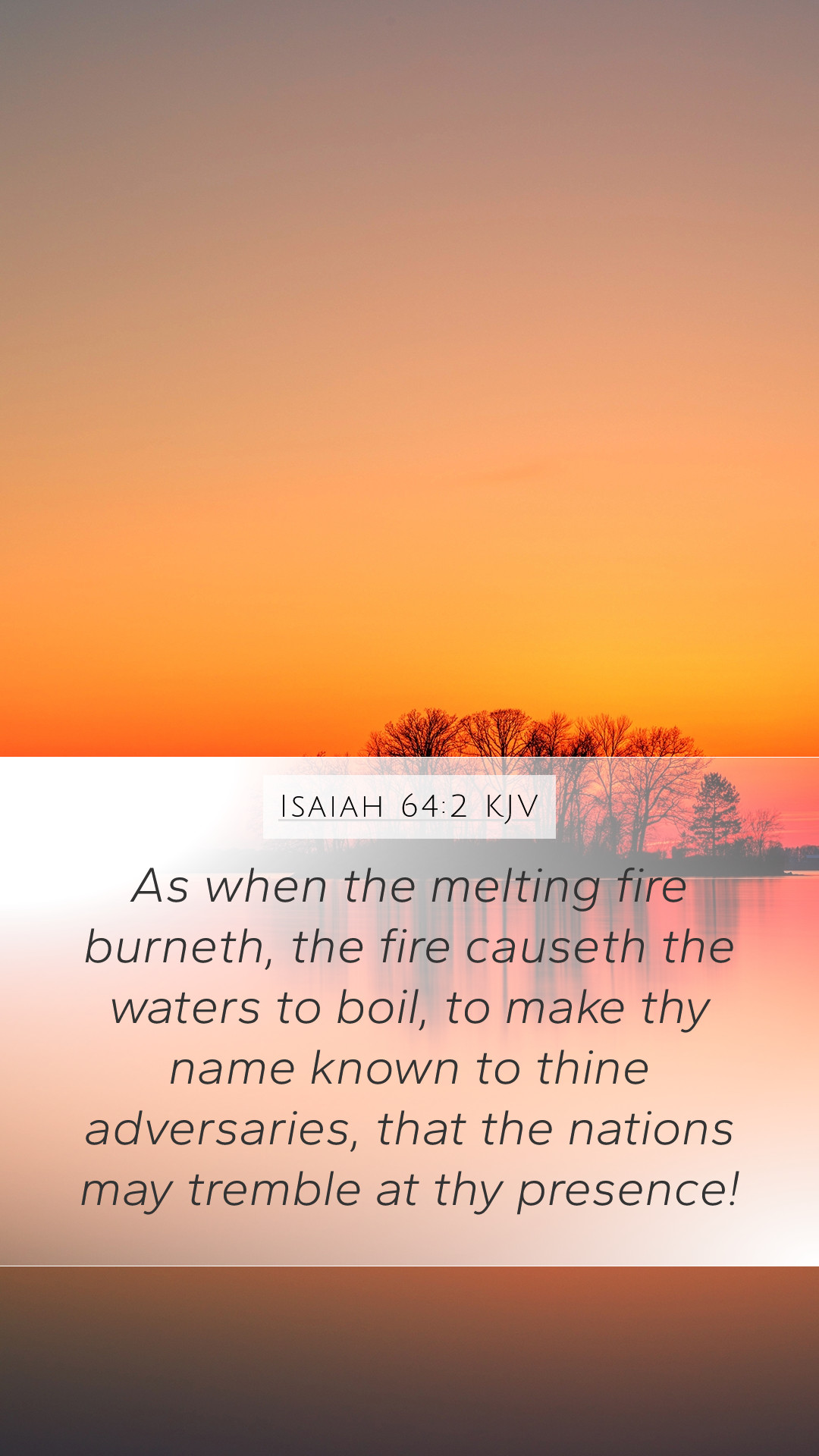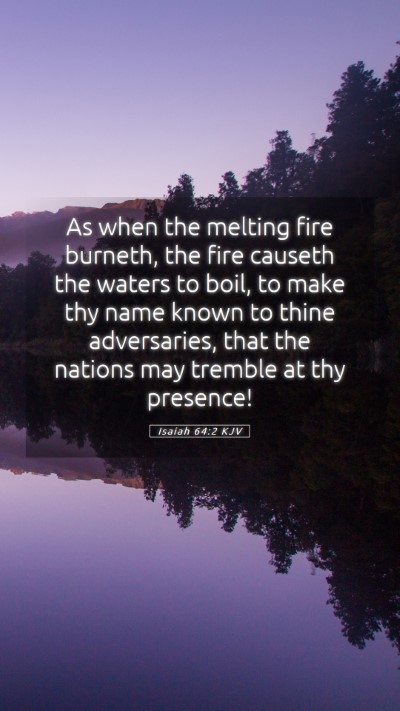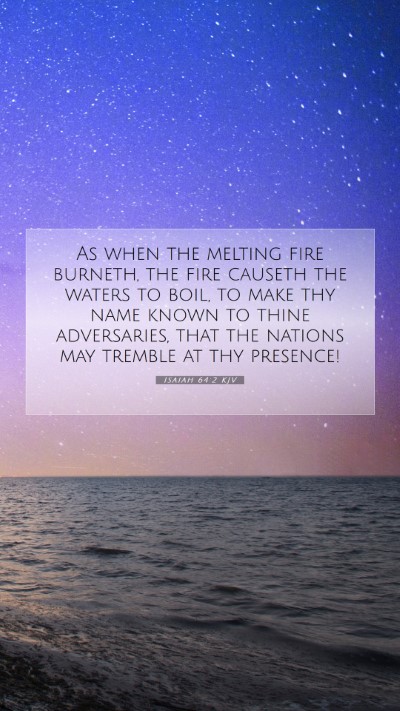Understanding Isaiah 64:2
Isaiah 64:2 states: "As when fire setteth the brushwood on fire, and the fire causeth the waters to boil; to make thy name known to thine adversaries, that the nations may tremble at thy presence."
This verse is a powerful plea from the prophet Isaiah, invoking the image of fire to illustrate God's might and the overwhelming impact of His presence. Below, we explore various Bible verse meanings and interpretations from esteemed public domain commentaries.
Overall Meaning of Isaiah 64:2
Isaiah desires a manifestation of God's power akin to a divine fire that moves people, including adversaries and nations. This imagery highlights God’s ability to inspire awe and fear, calling for divine action that leads to recognition and reverence of His name.
Bible Verse Commentary Insights
- Matthew Henry's Commentary:
Henry emphasizes the urgency and desperation in Isaiah's cry for God to intervene. The metaphor of fire represents both destruction and purification, suggesting that God's presence brings both judgment and hope. This verse shows the contrast between God's power and human weakness, pointing out that, without divine intervention, humanity is lost.
- Albert Barnes' Notes:
Barnes notes that the analogy of fire underscores a significant transformation that God can bring about. The boiling water metaphor suggests that God's presence can provoke a reaction, leading nations to recognize Him. Barnes also highlights the prophetic aspect, indicating a future time when all nations will realize the authority of God.
- Adam Clarke's Commentary:
Clarke elaborates on the notion of God's name being made known to adversaries. This visibility serves not just those who believe but also those who oppose Him. The intended fearful reverence of nations points to God's sovereignty and the universal recognition of His power, stressing the essential nature of acknowledgment and worship from all people.
Historical Context
The Book of Isaiah operates within a historical period where Israel was frequently challenged by foreign powers. Isaiah's urgent prayer reveals the plight of the Israelites and their need for divine assistance. The language of fire echoes theophanic moments throughout Scripture, where God reveals Himself in overwhelming ways, such as in the giving of the Law on Mount Sinai (Exodus 19) and later at the Day of Pentecost (Acts 2).
Cross References
- Exodus 19:18: Describes God descending upon Sinai in fire.
- Psalm 97:5: "The hills melted like wax at the presence of the Lord." This parallels the concept of trembling nations before divine power.
- Matthew 3:12: John the Baptist mentions Jesus as one who will baptize with the Holy Spirit and fire.
Application of Isaiah 64:2
In applying this verse to daily life, believers can reflect on the need for God's active presence and intervention in circumstances representing chaos or opposition. It encourages prayer for divine engagement in personal and collective struggles. Additionally, understanding the significance of God's power can lead to a deeper appreciation for His sovereignty and the call to reverence Him in all aspects of life.
Conclusion
Isaiah 64:2 serves as a profound reminder of God's might and the necessary recognition of His authority by all nations. By engaging with this scripture through commentary and understanding its broader biblical context, believers can gain Bible study insights that nurture personal faith and community worship. This verse not only calls for acknowledgment of God's power but also inspires a thirst for His presence among those who seek to follow Him.
Explore further on how to interpret Bible verses and deepen your understanding of Scripture through study tools and guides.


